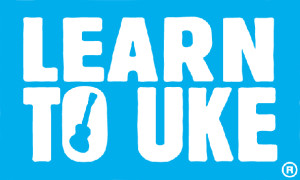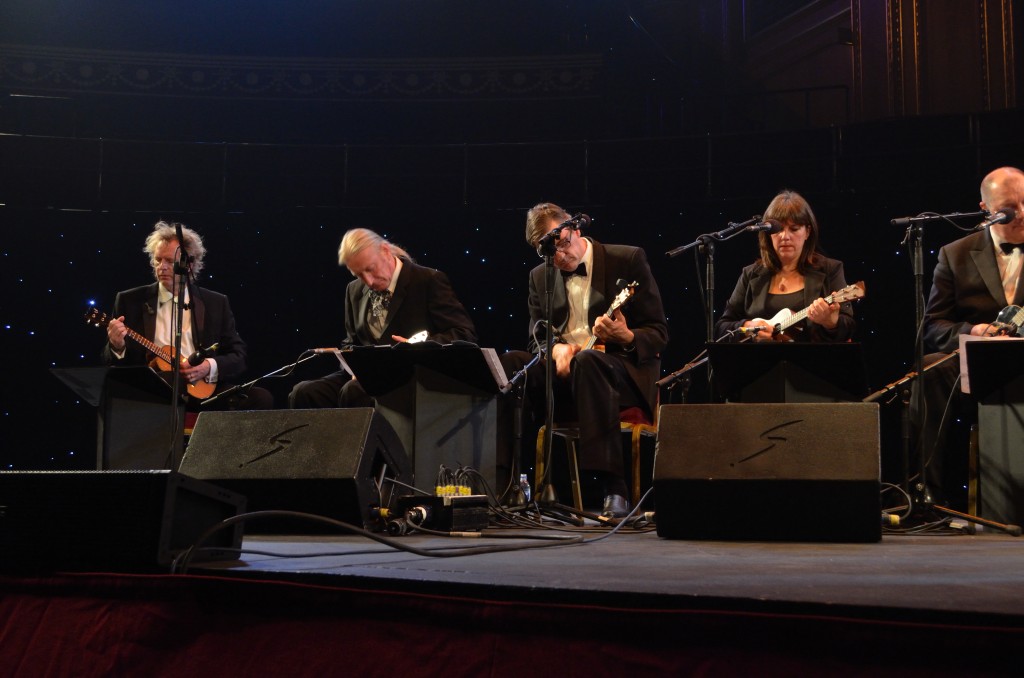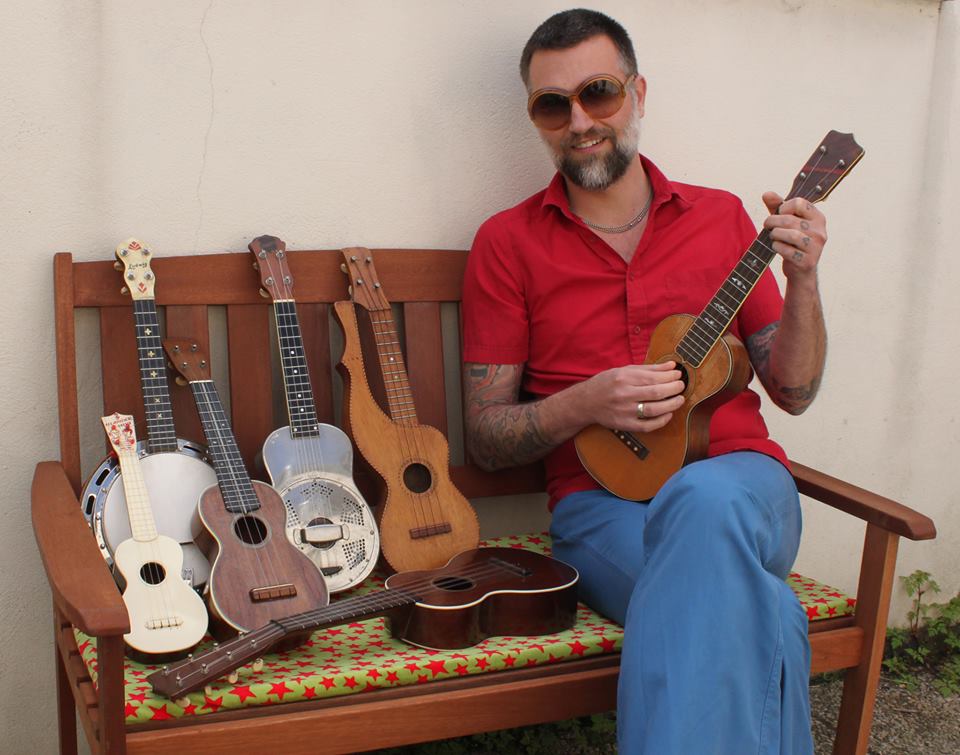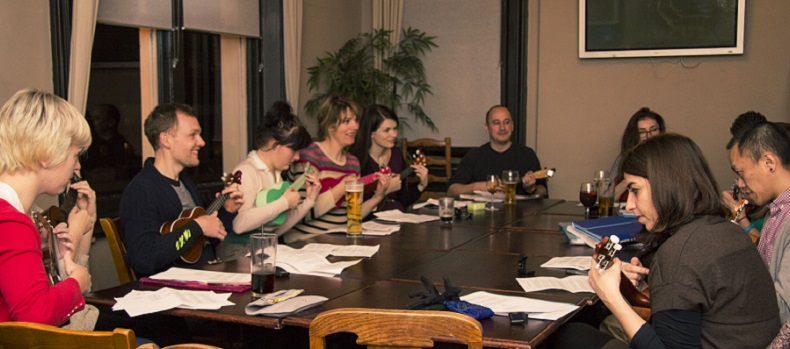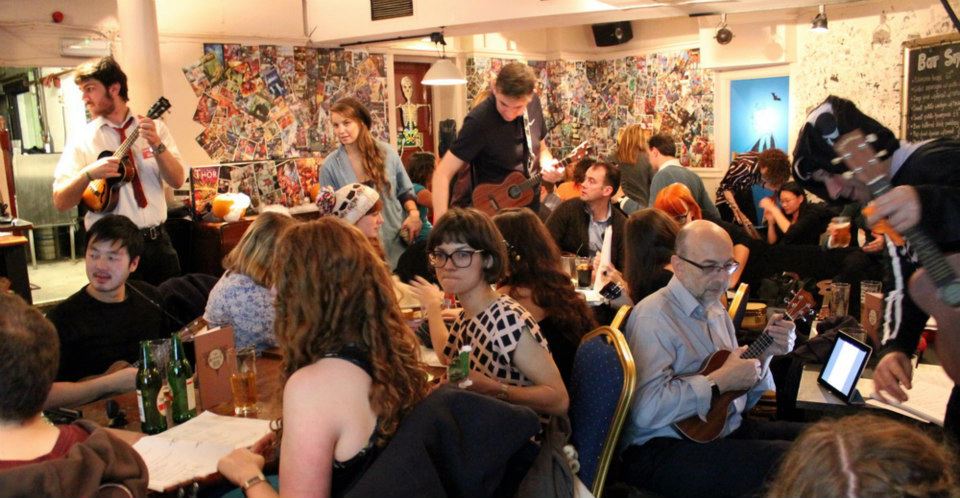4 Week Playing in a Ukulele Orchestra Course…
This course consists of (the usual Learn To Uke format) four 2 hour sessions working towards a “performance” of two finished pieces (selected on week 3 to suit the group) and arising from the techniques and experimentation undertaken. Participants only need to bring their instrument(s).
The course will explore the experience of playing ukulele in an orchestra of up to 14 players. Collective playing is always enjoyable but at its best can become intoxicating. With ensemble playing we will; seek to perform in a way that is contrasting but congruent and complimentary, present light and shade, and pose technical challenges suitable to players from a wide range of experiences and styles.
The aim of the course will be to:
- Provide a supported and directed experience of playing in an orchestral/ensemble context.
- Give all participants the opportunity to make a contribution to the musical whole, irrespective of experience.
- Offer solo players the chance to develop their skills of playing with other musicians of differing interests and abilities.
- Encourage “sympathetic listening” as part of the participants’ overall musical skills.
- Improve the confidence of all participants
About the (awesome) teachers:
Andy Astle took up the ukulele in the mid 80’s as a founder member of the Ukulele Orchestra of Great Britain, with whom he played for the first ten years. He continues his ukulele playing alongside guitar, having used it in a variety of professional contexts from arrangements of early European music, to contemporary ‘left field’ rock with ‘Band of Holy Joy’, and his continuing solo work. He is an experienced teacher and performer, and has a special fondness for massed ranks of ukes, and a fascination with the ‘dark side’ of the ukulele.
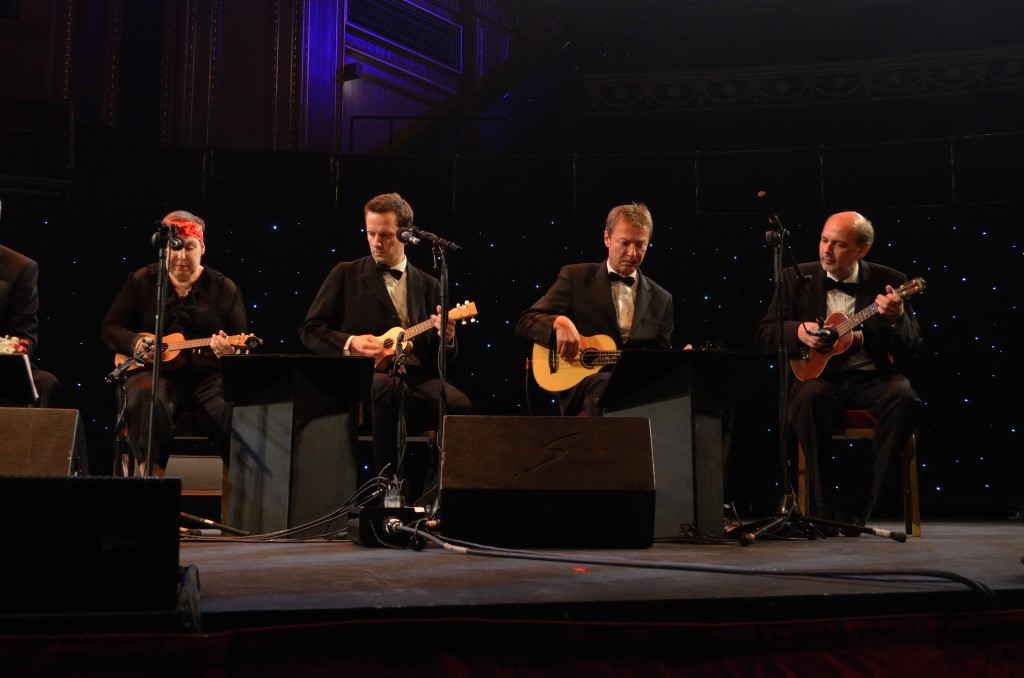
‘Noodly’ Nick Browning, playing at the Royal Albert Hall with the Ukulele Orchestra of Great Britain
Nick Browning has been active within the London ukulele community since 2006, performing, teaching and helping to organise events. He studied music at the City University and the classical guitar at the Guildhall School of Music. He has worked with George Hinchliffe (of the Ukulele Orchestra of Great Britain) on original arrangements and performances of the classical repertoire for the Ukulele and in 2011 played on Joe McElderry’s “Classic” album which reached #2 in the charts.
